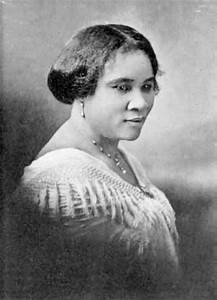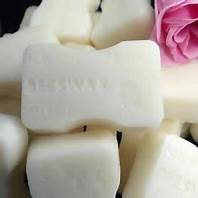Are AHAs Safe?














Are AHAs Safe?
AHAs have only been around for about 10 years and the effects of long-term exposure are unknown. The US Food and Drug Administration (FDA) estimate that there have been ove 10,000 reports of adverse reactions to cosmetics containing AHAs and BHAs. The symptoms described include itching, burning sensations, severe reddening of the skin, rashes, swelling, blistering and bleeding.
They can also lead to exfoliative dermatitis. Without the protection of the outer layer of the skin there is a greater sensitivity to sunlight, resulting in sunburn, photoaging (the premature aging of the skin caused by exposure to sun). and an increased risk of sun-related skin cancers. If you experience any of these symptoms. stop using the offending cosmetic immediately.
If you regularly use these cosmetics you should always use a sunscreen with a sunprotection factor (SPF) of 15 or higher before exposing your skin to direct sun-light.
And don't let the children use or play with potent cosmetics such as these. Their skin is much thinner than that of adults and they cannot afford to lose any of its vital protection. To emphasize the potential dangers , one widely used exfoliant, salicylic acid, is banned in the EU from toiletries intended for use by children under the age of three, with the exception of shampoo.
Curently, several commonly used exfoliants have not appeared yet on the EU commission's list of cosmetic ingredients;hence, there are no laws specifically regulating the use of these chemicals in the EU apart from the general law that says a product can only be sold if it is " safe".
In 1997, the Cosmetic Ingredient Review Panel (CIRP), the American cosmetic industry's self-regulatory body for addressing the safety of cosmetic ingredients the finished product should contain UV absorber nd glycolic acid, should not exceed 10 percent of the finished productand the acidity level of the product should not be lower (i.e., more acidic) then pH 3.5.
They also recommended the finished product should contain UV absorbers to protect the skin from the harmful effects of ultraviolet radiation. These are only recommendations and have no standing in law.
There are some products used insalonsthat are up to three times stronger than the recommended levels. The CIRP declared them to be safe, providing they are left on the skin for a short while only, then thoroughly rinsed off soon after application, followed by the daily use of a good quality sun screen
Cosmetic surgeons use even stronger acid solutions, containing about 70 percent of trichloroacetic acid (TCA) to achieve deep skin peels. These treatments sometimes cause burns similar to sunburn or discoloration opf the skin.
In June 1999, a meeting of top skin specialists concluded that most cosmetics would not live up to the manufacturers' claims and remove wrinkles. In fact there is only one controlled drug that can do this - retinoic acid, which has some very undesirable side effects and is banned from cosmetics in both the EU and the USA.
Their advice to beat wrinkles is simple. Don't smoke, keep out of the sun, and choose your parents well since fine lines and wrinkles are inherited , along with the rest of your skin.
Anti-aging Creams Do Not Work!
On October 16, 2000, founder and co-founder of the body Shop, Anita Roddick, confessed at the Cheltenham Literature Festival that many cosmetics are useless. The following day she repeated her commentson British national television and in the press.
She said that the moisturizers work, but all other lotions are pap." Ther is nothing on God's planet, not one thing that will take away thirty years of arguing with your husband, and 40 years of environmental abuse.
Anything that says that it can magically take away your wrinkles is a scandalous lie.."She added, " In Tahiti the women have skin like velvet and they simply take a lump of lard and rub it into their bodies."
Why would someone who has 1,754 outlets around the world with an annual turnover of £300 million (£200 million) and an estimated personal fortune of $220 million (£150 million) from the sale of her cosmetics, make such a statement - unless she believes it is true.
Reference: Cosmetics Unmasked: Dr. Stephen & Gina Antczak
Articles-Latest
- Skin tags: Why they develop, and how to remove them
- So That’s Why Your Skin Gets Crepey As You Get Older
- Eye Infection from False Eyelashes
- Teeth stain removal and whitening solutions
- Benefits of collagen for skin
- Why vitamin E should be part of your skincare regime
- Can gray hair be reversed?
- Hair loss affects 1 in 10 women before the menopause – here’s how to treat it
- Conscious ageing and Black skin: What happens when Black does crack?
- Your skin color may affect how well a medication works for you — but the research is way behind
- The C word Cancer
- Astringents
- How does light therapy work? The science behind the popular skincare treatment
- The Most Offensive Fashion Police Criticisms of All Time
- Everything you need to know about lip filler migration, as told by the experts
- Pig semen and menstrual blood – how our ancestors perfected the art of seduction
- Everything you need to know about benzoyl peroxide
- We've bleached, relaxed, and damaged our hair to make ourselves look more white
- Will this be the year that facial filler is cancelled?
- Shock of the old: 10 painful and poisonous beauty treatments
Cosmetic ingredients
LOGIN
Who's On Line
We have 97 guests and no members online
Articles-Most Read
- Home
- White Bees Wax
- Leucidal
- Cosmetic Preservatives A-Z
- Caprylyl Glycol
- Cosmetics Unmasked - How Safe Are Colorants?
- Cosmetics Unmasked - Choosing Ingredients
- Cosmetics Unmasked - Colorants And Fragrances
- EcoSilk
- Toxic Beauty - Who's Looking At Cosmetics?
- Cosmetics Unmasked - Fragrances
- Microbes and Cosmetics
- Microbes and Safety Standards
- Chemicals Lingering In The Environment
- Potassium Sorbate
- Yellow Bees Wax
- Toxic Beauty - Hazardous To Your Health
- What's Happening in the USA - Cosmetic Regulations - Toxic Beauty
- Synthetics In Cosmetics - The Industry Fights Back
- Fresh Goat's Milk Soap
- Active Ingredients
- Cosmetics Unmasked - Listing Cosmetics
- Toxic Beauty - Cocktails and Low Doses
- Natural Waxes A-Z
- Natural Butters A-Z


